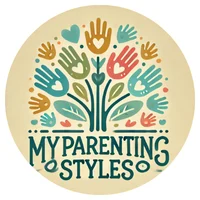arentified Child: Long-Term Effects & Healing Journey | Personal Story
The Hidden Weight: Growing Up as a Parentified Child
Parentification – a term that sounds clinical but carries the weight of countless untold stories. It’s the process where children step into adult roles long before they’re ready, taking on responsibilities that should never have been theirs to bear. This is my story, but it echoes the experiences of many others who found themselves growing up too fast, too soon.
The Early Years and Personal Experience
I was nine years old when I first learned to make mac and cheese from scratch. Not because I was particularly interested in cooking, but because my six-year-old sister needed to eat, and mom wasn’t home again. Standing on my tiptoes, carefully stirring the pot of boiling water, I was hyper-aware that one wrong move could spell disaster. This wasn’t just about making dinner – it was about being the responsible one, the caretaker, the impromptu parent.
The transformation from child to caregiver happened so gradually that I barely noticed it happening. Like water slowly filling a vessel, responsibilities accumulated until they overflowed into every aspect of my young life. While other kids were arranging playdates and trading Pokemon cards, I was checking homework, making sure teeth were brushed, and crafting explanations for why Mom wasn’t at the parent-teacher conferences.
The Impact on Daily Life
Academic Achievements and Struggles
In school, my parentified nature manifested in unexpected ways. Teachers praised my maturity and reliability, often putting me in charge of group projects or classroom responsibilities. While this earned me gold stars and approving nods, it also created an invisible barrier between me and my peers. I became the perpetual adult-in-training, unable to relate to the carefree attitude of my classmates.
My backpack was always the heaviest in class – not just with books, but with an emergency kit of sorts: band-aids, snacks, spare pencils, and even a small sewing kit. I was preparing for emergencies that most children never had to consider. This hyper-responsibility earned me nicknames like “mom” or “teacher’s pet” – terms that carried both praise and subtle mockery.
Social Development and Isolation
The weight of responsibility often left me feeling isolated from my peers. While they discussed the latest video games or TV shows, I was mentally reviewing my sister’s homework schedule or planning the next day’s meals. This disconnect created a loneliness that was hard to articulate – how do you explain to a ten-year-old that you can’t come to their birthday party because you need to make sure your sibling gets dinner?
The Long-Term Effects
Relationship Patterns
As an adult, the effects of parentification continue to influence my relationships in profound ways. In friendships, I naturally gravitate toward the caregiver role, often becoming the unofficial therapist of my social circle. While this might sound positive, it’s created an unhealthy imbalance where I struggle to receive care or support from others.
Dating has been particularly challenging. I often find myself attracted to people who need “fixing” or guidance, unconsciously recreating the caretaking dynamic I knew from childhood. It’s taken years of therapy to recognize this pattern and begin establishing healthier relationship boundaries.
Professional Impact
In my career, the effects of parentification have been both a blessing and a curse. My ability to handle multiple responsibilities, anticipate problems, and remain calm in crisis situations has made me valuable in professional settings. However, the same traits that make me efficient also make it difficult to delegate tasks or admit when I’m overwhelmed.
Mental Health and Healing
The psychological impact of early parentification runs deep. Anxiety and perfectionism became constant companions, manifesting in various ways:
- Constant vigilance about potential problems
- Difficulty relaxing or taking breaks
- Overwhelming sense of responsibility for others’ wellbeing
- Persistent guilt when taking time for self-care
- Trouble accepting help from others
The Journey Forward
Breaking the Cycle
Healing from parentification is an ongoing process. Through therapy and self-reflection, I’ve learned to:
- Set healthy boundaries in relationships
- Recognize and challenge perfectionist tendencies
- Allow myself to experience emotions without judgment
- Accept help and support from others
- Make time for play and relaxation
Finding Balance
Today, I’m learning to balance my natural caregiving tendencies with healthy self-care practices. While I may always carry some traits from my parentified childhood, I’m discovering that these characteristics can be strengths when properly managed and balanced.
Conclusion
The journey of healing from parentification continues to unfold. While I can’t change my past experiences, I can choose how they shape my future. By sharing this story, I hope to reach others who might recognize themselves in these words – fellow parentified children who are now adults, trying to make sense of their experiences.
Remember, if you see yourself in this narrative, you’re not alone. The weight you carried wasn’t yours to bear, but the strength you developed is yours to keep. The key is learning to use that strength not just for others, but for yourself as well.




